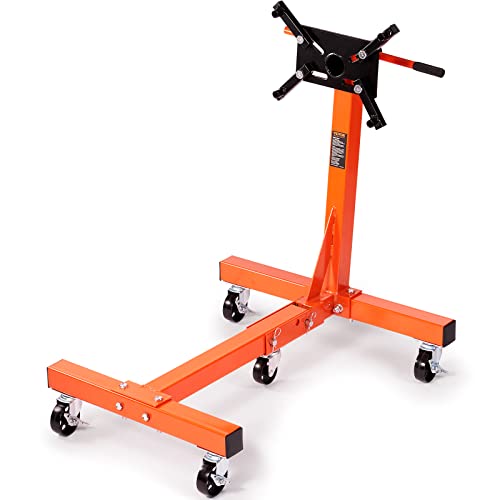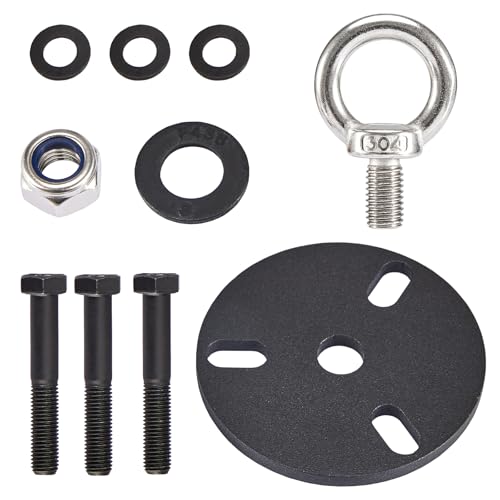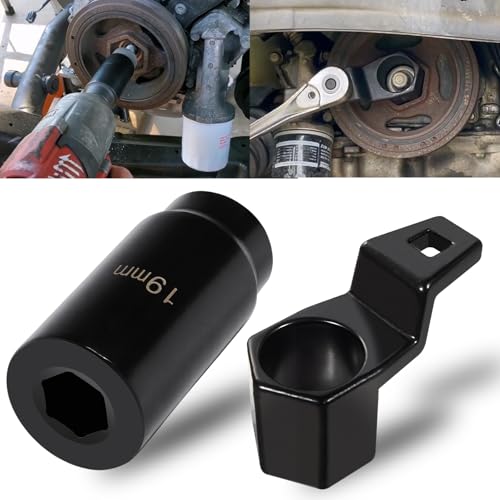The electric air compressor is key for both homes and industries. It offers strong and efficient air delivery. Models like the H185 VSD have Free Air Delivery from 131 to 191 cfm and work at 72 to 174 psi.
Unlike gas-powered ones, electric air compressors are clean and easy to maintain. They are a top choice for many tasks.
From the H450 VSD’s 466 cfm to Oasis’s compact models, electric air compressors stand out. They are easy to move and use in small spaces. This makes them perfect for many job sites.
They also save money and boost productivity. Choosing an electric air compressor means better work and reliability for a long time.
What is an Electric Air Compressor?
An electric air compressor is a device that uses electricity to compress air. It makes high-pressure air for tasks like inflating tires and powering tools. This technology is key for many industrial processes.
It works by pulling in air and compressing it in a tank. The air is stored until needed, saving energy. This makes electric air compressors efficient, especially when air needs change.
- They are much quieter than gas-powered ones, with noise levels around 61 dB(A). This makes them great for homes and cities.
- They don’t produce emissions, keeping the air clean.
- These compressors are built tough for outdoor use, making them versatile.
There are different models, like fixed speed and Variable Speed Drive (VSD) ones. They can handle pressures from 5 to 14 bar and flow rates up to 31.2 m³/min. Electric options save a lot of money, costing two to four times less than diesel ones.
| Feature | Electric Air Compressor | Diesel Air Compressor |
|---|---|---|
| Operating Costs | 2 to 4 times lower | Higher |
| Noise Level | Down to 61 dB(A) | Typically louder |
| Maintenance Interval | Every 2000 hours/2 years | More frequent |
| Environmental Impact | No emissions | Pollutants produced |
| Durability | Ruggedized for outdoor use | Varies |
Electric air compressors are becoming more popular because they’re efficient and good for the environment. Brands like Atlas Copco are always improving them. These advancements help with performance, energy use, and saving money.
Advantages of Electric Air Compressors
Electric air compressors bring many benefits for both businesses and industries. They are efficient and can run for up to 4,000 hours without stopping. This is a big plus compared to diesel compressors, which need maintenance every 250 hours.
This efficiency means lower costs and less downtime. It’s a big win for businesses looking to save money and keep operations running smoothly.
Another great point is how little maintenance electric compressors need. Unlike diesel models, which need upkeep every two weeks, electric ones require almost no service. This not only saves money but also makes them reliable for the long haul.
Also, electric compressors don’t produce any emissions, making them better for the environment. They help keep the air clean, which is key for companies aiming to be more sustainable. This is especially important as rules on emissions get stricter.
Lastly, electric air compressors are cost-effective. They can save up to 83% on energy costs compared to diesel models. As diesel prices keep going up, more businesses are seeing electric compressors as a smart financial choice.
| Feature | Electric Air Compressors | Diesel Air Compressors |
|---|---|---|
| Run Time Before Maintenance | Up to 4,000 hours | Every 250 hours |
| Fuel Requirement | No fuel needed | Requires frequent refueling (every 12 hours) |
| Maintenance Frequency | Less frequent, lower costs | Every two weeks, higher costs |
| Emissions | Virtually no emissions | Produces pollutants (CO2, NOx) |
| Energy Efficiency | Highly efficient, up to 83% savings | Less efficient, higher costs |
| Sustainability | Contributes to lower carbon footprint | Increases carbon footprint |
In summary, electric air compressors offer many benefits. They are efficient, require little maintenance, and are good for the environment. These qualities make them a top choice for many applications, showing a shift towards cleaner and more cost-effective solutions.
How Electric Air Compressors Work
Electric air compressors work in a cool way. They take in air and squeeze it in a chamber powered by an electric motor. The key parts are the air intake valve, the compression chamber, and the discharge valve. Each part is vital for efficient air compression.
These compressors use two main ways to work: positive and dynamic displacement. Positive displacement draws air into a chamber and then squishes it. This is common in piston and rotary vane compressors. Dynamic displacement uses an impeller with rotating blades to push air fast into the chamber, creating pressure.
Rotary screw compressors are often used in factories. They have two interlocking screws that make a vacuum to bond and compress air. Rotary vane compressors, on the other hand, use blades that adjust to keep a good compression ratio. They’re great for small spaces.
Reciprocating or piston compressors work by moving a piston up and down. This creates a pressure difference, making them effective. Single-stage compressors are good for steady air flow. But two-stage compressors have two pistons, making them better for tough tasks in factories or workshops.
At the heart of these compressors are electric motors, often three-phase squirrel cage induction motors. They’re built to last and work well in different conditions, thanks to IEC standards. Their torque capacity is shown in torque curves, showing how well they perform.
The electric air compressors working mechanism is not just about compressing air. It’s also about being flexible with adjustable pressure regulators. Modern models with variable speed drives use less power, saving energy and money. These features help a lot with saving energy and keeping costs down.
Types of Electric Air Compressors
It’s important to know the different types of electric air compressors. They can be portable or stationary. Each type is best for different uses.
Portable air compressors are easy to move around. They come in sizes for home use or for heavy-duty jobs. They work well for tasks like filling tires or using nail guns.
Stationary air compressors are for constant use in places like factories or workshops. They can handle more work and pressure. Some can even go up to 500 HP.
There are also oil-lubricated and oil-free compressors. Oil-lubricated ones use oil to seal the chamber. Oil-free ones use special tech to avoid oil. This is good for places that need clean air, like dental offices.
“Choosing the right type of electric air compressor can significantly impact the efficiency and effectiveness of your operations.”
Compressors are also sorted by capacity. Low-capacity ones are for small tasks. High-capacity ones are for big industrial jobs.
In short, knowing the differences between portable and stationary compressors is key. It helps make the right choice for your needs and ensures they work well.
Portable Air Compressors: Flexibility and Convenience
Portable air compressors are very flexible and essential for many tasks. They are small and light, making them easy to move around. They are used in construction and home projects, offering different models like the Dewalt D55146 and Makita MAC2400.
- Dewalt D55146: Costs $399.9 and can handle up to 225 PSI. It’s great for tough construction jobs.
- Makita MAC2400: Priced around $326, it has a Big Bore pump for better performance in home projects.
- California Air Tools CAT-1P1060S: At $178.97, it’s quiet and oil-free, perfect for mobile mechanics or light tasks.
- VEVOR 13 Gallon Air Compressor: Costs $268 and has a 2HP motor. It’s good for many tasks with a flow rate of 4.6 SCFM at 90 PSI.
Portable air compressors are great for construction and utility work. They come in different sizes, from 60 cfm to 1600 cfm. Electric models like the M250E and M255E are efficient and don’t pollute.
“Portable electric air compressors not only simplify operations across job sites but also enhance sustainability by minimizing environmental impact.”
They have features like anti-frost valves and easy controls. Brands like ELGi offer durable and advanced technology. A portable air compressor can make your work more efficient and adaptable.
Quiet Air Compressors for Residential Use
Quiet air compressors are perfect for homes where noise is a big issue. They work well in home workshops and garages. This is because they are as quiet as 50.6 dB, making them great for indoor use.
Eight air compressor models were tested for 20 hours. They used five tests to check their performance and noise. Prices ranged from $140 to $400, and tank sizes were from 1 to 10 gallons.
California Air Tools stood out in the tests. They make quiet compressors for homes. These compressors have a unique design that makes them quiet. They have:
- Lower speeds for less noise.
- Teflon seals instead of metal rings.
- Smaller or larger mufflers to reduce noise.
- Bigger pipes to manage air noise better.
These features make them quiet and perfect for homes. They also have a special design that reduces vibration. Using pipes for airflow can even lower noise by 20 to 30 dB.
| Model | CFM at 90 PSI | Decibel Level | Price |
|---|---|---|---|
| Best Overall | 2.20 | 61 dB | $400 |
| Best Bang for Buck | 1.20 | 65 dB | $140 |
| Best Compact | 2.00 | 58 dB | $250 |
| Best for Air Tools | 5.30 | 70 dB | $400 |
In short, quiet air compressors are great for homes. They work well and keep the environment peaceful. Choosing the right one is key for effective use without disturbing others.
Industrial Air Compressors: Meeting Heavy-Duty Demands
In industrial settings, electric air compressors are seen as the fourth utility, along with electricity, water, and gas. They provide a clean, reliable, and safe power source. This is crucial for many applications, especially in heavy-duty environments.
These compressors are widely used in manufacturing, oil & gas, and construction. They show unmatched reliability in extreme conditions. They can handle harsh environments, including extreme temperatures and dirty settings.
Tools powered by compressed air are lighter and safer than electric tools. Electric tools can overheat with too much use.
- Mining: Compressed air systems are key for clean air, powering tools, and operating conveyors in mining.
- Healthcare: In medical settings, they provide a stable power source for equipment like oxygen systems and surgical tools.
- Cement Production: Air compressors help with tasks like moving heavy materials and packing cement.
- Electronics: In the semiconductor industry, they support material movement and chip cooling during manufacturing.
- Aerospace: Compressed air is crucial in aircraft maintenance and testing, improving safety and efficiency.
Companies like GHH RAND provide advanced solutions to boost operational efficiency. They use technologies like variable speed drives and high-capacity tanks. This helps industrial air compressors manage high airflow rates and pressure levels, meeting the demands of various industries.
| Industry | Application of Industrial Air Compressors |
|---|---|
| Manufacturing | Boosts productivity and enhances precision in assembly processes. |
| Oil & Gas | Facilitates exploration, processing, and refining tasks, increasing operational efficiency. |
| Pharmaceuticals | Maintains product quality and safety during production. |
| Food and Beverage | Guarantees quality and safety throughout food processing operations. |
| Construction | Makes construction tasks manageable and more efficient. |
Oil-Free Air Compressors: Clean and Efficient
Oil-free air compressors have changed the game by offering clean air for sensitive tasks. Places like food, pharmaceuticals, and electronics need air without oil’s contamination risk. These compressors use new tech to skip oil, making them reliable and cost-effective.
Here are some top oil-free air compressors:
| Model | Horsepower | Price (USD) | CFM Range |
|---|---|---|---|
| Atlas Copco SF8-22 | 10 to 30 hp | $21,528.00 | 24.4 to 86.5 CFM |
| Quincy Compressor QOF Series | 2 to 30 hp | $7,153.60 | Not specified |
| Schulz Compressors Oilless Piston | 1 to 15 hp | $990.00 | Not specified |
| Powerex SLAE Scroll Bare Pumps | 3 to 10 hp | $3,963.68 | Not specified |
| Anest Iwata Model SLE | 5 to 60 hp | $10,824.80 | Not specified |
| Hertz HS Series | 2 to 40 hp | $10,765.45 | Not specified |
| Altec AIR CDA10 Package | Not specified | $5,670.00 | Not specified |
| Chicago Pneumatic SPR 20-30 | Not specified | $32,367.20 | Not specified |
| FS-Curtis ECO-Scroll | Not specified | $8,384.32 | Not specified |
| Industrial Gold Simplex | Not specified | $5,867.25 | 6 to 86 CFM |
These compressors meet high air quality standards. For example, ISO 8573-1 Class 0 means they provide oil-free air. This leads to better product quality, less waste, and lower energy bills for businesses.
Choosing oil-free air compressors brings big benefits. They need less maintenance and last longer. This choice is good for the planet and boosts business efficiency.
High-Pressure Air Compressors for Specialized Applications
High-pressure air compressors are key in many specialized fields. They are used in automotive service, sandblasting, and painting. These industries need high pressure to work well. The compressors are built strong and use the latest tech to meet these needs.
- Automotive service: Essential for tire inflation and air tools, ensuring vehicles are serviced efficiently.
- Sandblasting: Delivers the necessary power to remove coatings and prepare surfaces for painting.
- Painting: Provides a smooth and even application of paint, essential for a professional finish.
Brands like Ingersoll Rand and Atlas Copco are known for their quality. Ingersoll Rand has been around for over 145 years. They offer a wide range of compressors, including positive displacement models.
These compressors can push air up to 500 psig. This is perfect for tough manufacturing jobs. They also come with cool features like the Helix Connected Platform by Ingersoll Rand. This lets users see real-time data to improve performance.
Using genuine OEM parts is very important. They help keep compressed air systems running well and lasting longer. High-pressure air compressors are vital for boosting productivity in specific areas. They ensure reliability and top performance.
Understanding Air Compressor Tanks
The air compressor tank is key to electric air compressors working well. It holds compressed air, ready when needed. Its size and strength are vital for the compressor to work efficiently.
Tanks come in different sizes, affecting airflow and system performance. Picking the right size is crucial for managing air pressure. This prevents the compressor from wearing out too fast. It also keeps air supply steady, especially when demand is high.
These tanks can handle high pressures, meeting standards like ASME or CE. This makes them reliable, keeping the system stable under heavy use. Getting an air compressor tank can save money by making the system more efficient and reducing wear.
| Feature | Description |
|---|---|
| Function | Stores compressed air for consistent supply |
| Pressure Rating | Must meet required PSI levels for safety and efficiency |
| Material Strength | Designed to withstand high pressures, typically meeting ASME or CE standards |
| Size Variability | Available in multiple sizes for diverse application needs |
| Investment Return | Low initial cost offers quick return on investment through improved efficiency |
Getting the right air compressor tank helps manage pressure better. It makes the system more reliable and handles high demands well. It’s a smart choice for anyone using electric air compressors.
Essential Air Compressor Accessories
To get the most out of electric air compressors, you need the right accessories. These include air hoses, pressure regulators, filters, and more. They make your setup better for all sorts of tasks, from simple inflating to complex machinery work.
Among the most important accessories are:
- Air Hoses: They come in different lengths, sizes, and materials. The right hose fits your air compressor model and meets project needs.
- Pressure Regulators: These keep air pressure steady. They prevent harmful pressure changes, making tasks smoother.
- Air Couplers: They connect your air compressor to tools. There are many types to fit your needs, improving connection and flexibility.
- Filters: They remove dirt and moisture from the air. This protects your equipment from damage, making it last longer.
- Air Dryers: Great for areas with lots of air pollution. They clean the air using refrigeration or desiccants, stopping moisture problems.
- Blow Guns: Choosing the right blow gun is key for cleaning hard-to-reach spots. They make cleaning tasks more efficient and effective.
- Lubricants: They keep your compressor running smoothly. Lubricants prevent overheating and leaks, saving energy and keeping performance up.
- Paint Guns: Need a compatible air compressor for the best results. They ensure a top-quality paint job.
Using these accessories makes your air compressor work better and safer. The right parts improve performance and extend your system’s life.
| Accessory | Purpose | Benefits |
|---|---|---|
| Air Hose | Transfers compressed air | Works with many projects |
| Pressure Regulator | Maintains air pressure | Keeps pressure steady, avoiding damage |
| Air Coupler | Connects components | Improves tool connection |
| Filter | Removes contaminants | Helps equipment last longer |
| Air Dryer | Purifies air | Removes moisture in polluted areas |
| Blow Gun | Cleans surfaces | Great for removing debris |
| Lubricant | Maintains efficiency | Prevents overheating and leaks |
| Paint Gun | Applies paint | Guarantees quality paint jobs |
Electric Air Compressor Maintenance Tips
To keep your electric air compressor running well, regular care is key. Following good maintenance tips can help avoid expensive fixes and downtime. Start by checking hoses and connections often to catch air leaks early. These leaks can cost a lot over time.
Don’t forget to clean or replace filters as needed. Also, make sure to lubricate moving parts as the maker suggests. This keeps everything running smoothly.
During winter and spring, do extra checks. Make sure to check oil levels and change it when needed. Also, drain the air tank to stop rust from moisture. Look for worn belts and pulleys to avoid slippage.
Keep a maintenance log to track your work. This helps when you need to find problems later. Always follow the maker’s advice for best performance and safety. By doing this, your compressor will last longer and work better, making your job easier and more rewarding.



